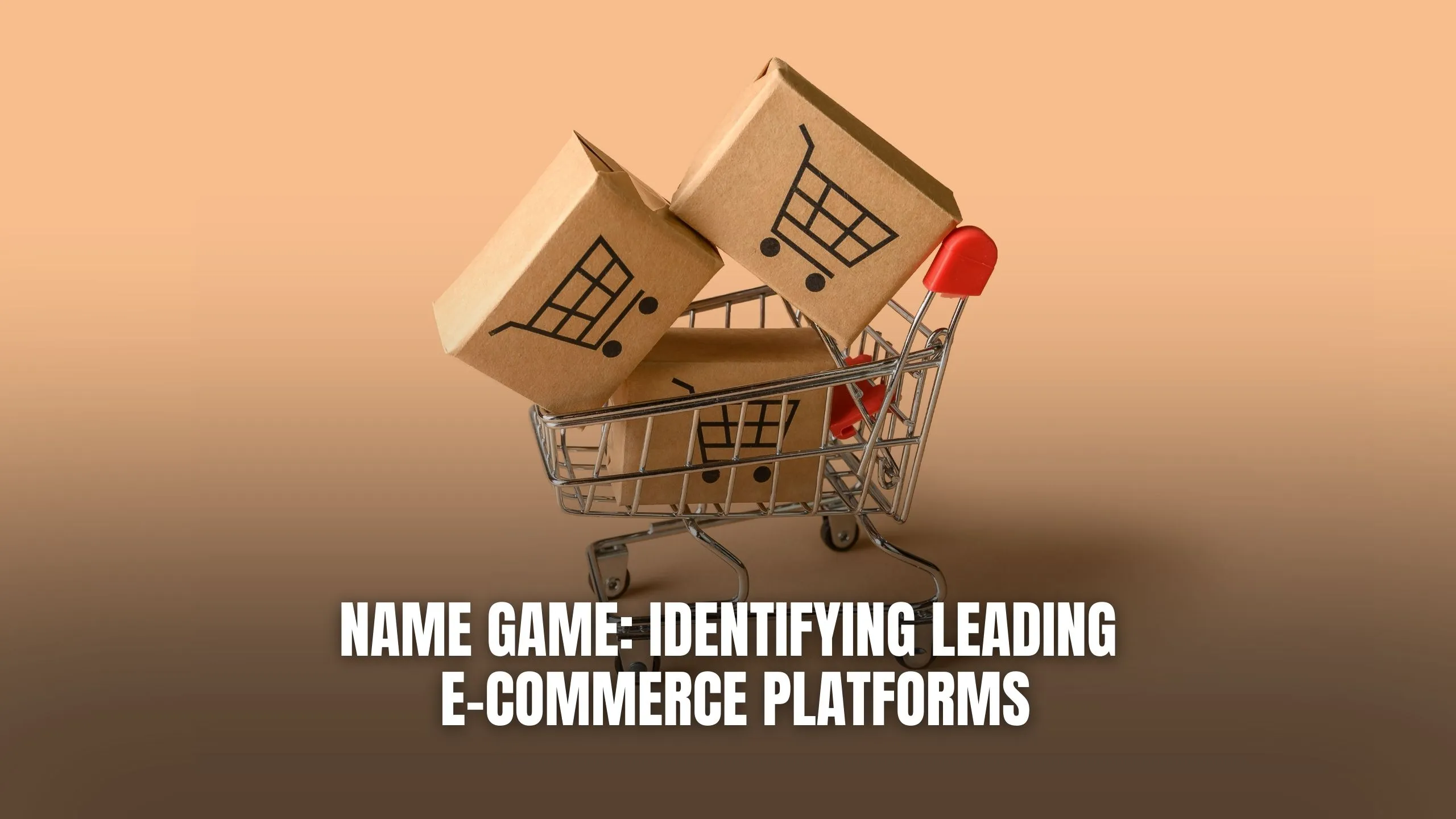Name Game: Identifying Leading E-commerce Platforms


Name Game: Identifying Leading E-commerce Platforms
In the vast landscape of e-commerce, numerous platforms vie for attention, each offering unique features and benefits. Let’s delve into some of the leading e-commerce platforms that have made a significant impact on the online retail industry.
1. Shopify
Shopify stands out as one of the most popular e-commerce platforms, offering a user-friendly interface, customizable templates, and robust features for building online stores. With Shopify, users can easily manage inventory, process orders, and accept payments, making it an ideal choice for businesses of all sizes.
For instance, Sarah, a budding entrepreneur, launched her boutique clothing line using Shopify’s intuitive interface, enabling her to customize her store’s design and showcase her products effectively. Sarah used Shopify’s marketing tools to attract customers and drive sales, establishing her brand in the competitive e-commerce market.
2. WooCommerce
WooCommerce, a WordPress plugin, is renowned for its flexibility and scalability, making it an ideal choice for businesses seeking to leverage the power of WordPress for e-commerce. It enables customizable online stores, seamlessly integrating with WordPress for a smooth shopping experience for customers.
Mark, a freelance artist, transformed his WordPress blog into an online art gallery with WooCommerce, allowing him to sell his artwork directly to his audience with ease. Using WordPress and WooCommerce, Mark showcased creativity, expanded globally, drove sales, and grew his business effectively.
3. Magento
Magento, an open-source e-commerce platform, caters to enterprise-level businesses with its advanced features and scalability. With Magento, users have the flexibility to create unique, feature-rich online stores that can handle high volumes of traffic and transactions.
Emily, the owner of a growing cosmetics brand, expanded her online presence using Magento’s multi-store functionality, enabling her to manage multiple storefronts from a single platform and target different customer segments effectively. By harnessing Magento’s powerful capabilities, Emily was able to scale her business and drive revenue growth, cementing her brand’s position in the competitive beauty industry.
4. BigCommerce
BigCommerce is a feature-rich e-commerce platform designed to streamline the process of building and managing online stores. It offers built-in features like SEO tools, marketing integrations, and mobile optimization for creating engaging shopping experiences.
James, a tech enthusiast, launched his electronics store on BigCommerce, leveraging its built-in marketing tools and seamless integrations to drive traffic and increase sales. By harnessing the power of BigCommerce’s comprehensive platform, James was able to attract customers, boost conversions, and grow his online business with ease.
5. Wix
Wix offers a user-friendly website builder with e-commerce capabilities, making it an attractive option for small and medium-sized businesses. With Wix, users can create stunning online stores using drag-and-drop tools and customizable templates, without any coding knowledge required.
Tina, a jewelry designer, created her online store on Wix, utilizing its drag-and-drop interface and customizable templates to showcase her unique creations and attract customers. With Wix, Tina realized her vision, established her brand online, and drove sales effortlessly.
Relevant SaaS Products:
- Google Analytics: Google Analytics tracks traffic, behavior, and conversions, providing valuable insights for e-commerce businesses to optimize online platforms effectively.
- Zendesk: Zendesk’s help desk software enables e-commerce platforms to efficiently resolve inquiries, maintaining high customer satisfaction levels.
- Salesforce: Salesforce’s cloud platform streamlines CRM for e-commerce, managing leads, tracking interactions, and personalizing marketing effectively.
- Shopify Plus: Shopify Plus scales e-commerce seamlessly with advanced features, aiding high-growth businesses in managing transactions and optimizing performance.
- Adobe Analytics: Adobe Analytics offers actionable insights for e-commerce, enabling data-driven decisions and driving business growth through customer behavior analysis.
Conclusion
Choosing the right e-commerce platform is crucial for the success of your online business. Whether you’re a small startup or a large enterprise, evaluating factors such as scalability, customization options, and integration capabilities can help you make an informed decision. By understanding the strengths and unique features of leading e-commerce platforms like Shopify, WooCommerce, Magento, BigCommerce, and Wix, you can find the perfect solution to suit your business needs and propel your online store to new heights.
Elevate Your E-commerce Game with Subscribed.fyi!
Ready to optimize your e-commerce strategy? Unlock exclusive deals on essential SaaS tools tailored to streamline your e-commerce operations and drive growth. Sign up for free today to unlock savings on 100+ SaaS tools and take your business to the next level!
Relevant Links:








